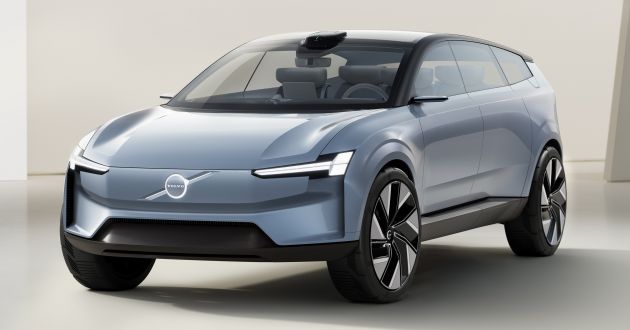Volvo next-generation EVs to get “emotional” names
At Volvo’s Tech Moment presentation last month, the company announced it would be ditching its XC, S and V alphanumeric naming convention in favour of “proper” monikers for its future models, which will all be fully electric. Its president and CEO Håkan Samuelsson has now provided an explanation for the move, per a report by Autocar.
Speaking to the publication, the Swedish executive said that Gothenburg wanted to move away from the unemotional engineering terms affixed to the back of cars today, in order to mark a new era for the company. “If you look at cars today, all of them are very ‘engineeredly’ named: XC, T8, all-wheel drive, double overhead cams. It’s all specification on the rear of many cars,” said Samuelsson.
“We’re talking about a totally new architecture, a new generation of born-electric, all-electric cars with central computing. It’s good and clear to mark that this is a new beginning, and that’s why we’re not going to have numbers and letters, an engineering type of name. We’re going to give them a name as you give a newborn child a name.”
This tracks with Samuelsson’s remarks at the end of the June presentation, during which he said that future Volvo cars “will have a name, more like a child.” He also told Autocar that the name of the first next-gen car, a 2022 XC90 replacement previewed by the Concept Recharge during the same event, has yet to be finalised, adding that “we have a very interesting and creative discussion going on.”
While Volvo has generally stuck to numeric and alphanumeric names, the company has flirted with deviating from this practice in the past. The Duett was a ladder-frame wagon built in the 1950s and 1960s, while the popular 122 – which debuted the world’s first three-point seat belt – was known as the Amazon in Sweden.
Aside from a new name, the forthcoming flagship model will also debut a new, cleaner design language as seen on the Concept Recharge. With a new electric architecture set to free up any limitations posed by a conventional internal combustion engine and drivetrain, Volvo is promising a sleeker profile for better aerodynamics, as well as greater cabin space.
The car will also utilise the latest safety and in-car technologies, including a standard-fit roof-mounted lidar sensor and a new operating system developed in partnership with Google.
The post Volvo next-generation EVs to get “emotional” names appeared first on Paul Tan's Automotive News.
from Paul Tan's Automotive News
Read The Rest:paultan...




Post a Comment